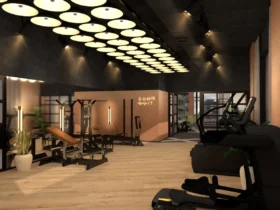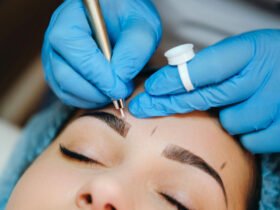A neuro-optometric vision appointment helps address visual and neurological concerns. Proper preparation can make the visit more productive. By following a few simple steps, you can make the experience easier and more effective. Here are the key things to do before your appointment.
Gather Your Medical History
Bring your full medical history to the appointment. This includes any past diagnoses and treatments. Make sure to include details of neurological conditions or injuries, such as traumatic brain injuries or strokes. Your medical history will give the specialist a clearer picture of the factors affecting your vision.
Don’t forget to include information about current medications and any supplements you are taking. Additionally, mention any family history of vision or neurological issues. This will help the neuro-optometrist understand your condition better.
Document Your Symptoms
Before your appointment, take time to list all the symptoms you’ve been experiencing. For example, blurred vision, headaches, dizziness, and difficulty reading might point to underlying issues. Write down when the symptoms began, how often they occur, and any triggers that seem to worsen them. Be as detailed as possible.
Bring Past Eye Prescriptions and Test Results
When visiting your neuro-optometrist, bring any past eye prescriptions and test results with you. These documents help the specialist understand your vision history and identify any significant changes. Previous exam records offer a baseline that can be compared to current findings. This comparison aids in detecting trends that may indicate the progression of a condition.
By reviewing your past eye health data, your neuro-optometrist can create a more accurate and personalized treatment plan. Old prescriptions and test outcomes often reveal patterns that may not be obvious from a single exam. Tracking these changes over time helps the specialist understand how your visual system is responding. This thorough approach supports better diagnosis and more effective management of your vision.
Rest Your Eyes Before the Appointment
On the day of your appointment, avoid reading or spending too much time in front of a screen. Straining your eyes beforehand can affect the results of your tests. Giving your eyes some rest will lead to more accurate measurements and improve the efficiency of your appointment.
Try to take a break from activities like watching TV or using your phone for a few hours before your visit. This simple step helps prevent fatigue, which can interfere with the accuracy of the eye exams. Resting your eyes also makes sure you feel more comfortable during your appointment.
Maximize Your Neuro-Optometric Appointment with These Simple Steps
Proper preparation is key to a successful neuro-optometric appointment. By gathering your medical history and documenting symptoms, you can assist your specialist in making a more accurate assessment. Bringing any necessary records and resting your eyes beforehand will enhance your experience. Additionally, having a trusted companion with you can provide extra support.
Remember to prepare any questions you may have to ensure a productive visit. Taking these steps will help reduce stress and maximize the benefits of your appointment. If you have concerns or need further guidance, reach out to your specialist ahead of time. Being prepared will ensure a smoother, more effective consultation.


















Leave a Reply